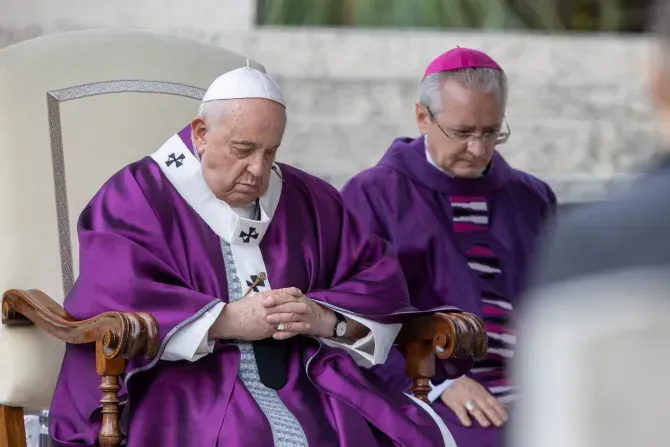The attack on Essakane village that is in what is described as “three borders” zone near the borders of Burkina Faso with Mali and Niger was confirmed by the Vicar General of the Catholic Diocese of Dori, Fr. Jean-Pierre Sawadogo.
Fr. Sawadogo confirmed the killing of 15 Catholic worshippers and the injury of two others in a February 25 statement he availed to the media, in which he appealed for prayers for the souls of those who had “died in faith”; he also appealed for spiritual solidarity with all those in need of healing and consolation.
Pope Francis’ February 28 appeal for spiritual solidarity with victims of the dual attacks comes two days after he appealed for “respect for sacred places and the fight against violence to promote the values of peace.”
In his February 26 telegram of condolences addressed to the President of the Catholic Bishops’ Conference of Burkina Faso and Niger (CEBN), Bishop Laurent BirfuoréDabiré of Dori Diocese, the Holy Father expressed his closeness and pain with the victims of the attack.
“Pope Francis has learned with deep affliction the tragic terrorist attack that happened in a Catholic church in Essakane on February 25, 2024, and the loss of human lives that it caused,” read in part the telegram message that the Secretary of State, Pietro Cardinal Parolin, signed.
Cardinal Parolin added, “His holiness also expresses his sadness to the Muslim community for the attack on a mosque in Natiaboani. He prays for the rest of the deceased people, trusting them to the mercy of God, as well as for the healing of the wounded.”
The February 25 attacks are the latest in a series of the Sahel atrocities blamed on Islamist terrorist groups linked to al-Qaeda and Islamic State, reportedly active in the region. The groups have reportedly taken over long strips of land and contributed to the displacement of millions of people in the region.
Authorities in the Sahel region have been battling against the Islamist terrorist groups since Libya’s civil war in 2011, followed by an Islamist takeover of Northern Mali in 2012. The jihadist insurgency reportedly spilled over into Burkina Faso and Niger from 2015.
ACI Africa was founded in 2019. We provide free, up-to-the-minute news affecting the Catholic Church in Africa, giving particular emphasis to the words of the Holy Father and happenings of the Holy See, to any person with access to the internet. ACI Africa is proud to offer free access to its news items to Catholic dioceses, parishes, and websites, in order to increase awareness of the activities of the universal Church and to foster a sense of Catholic thought and culture in the life of every Catholic.





